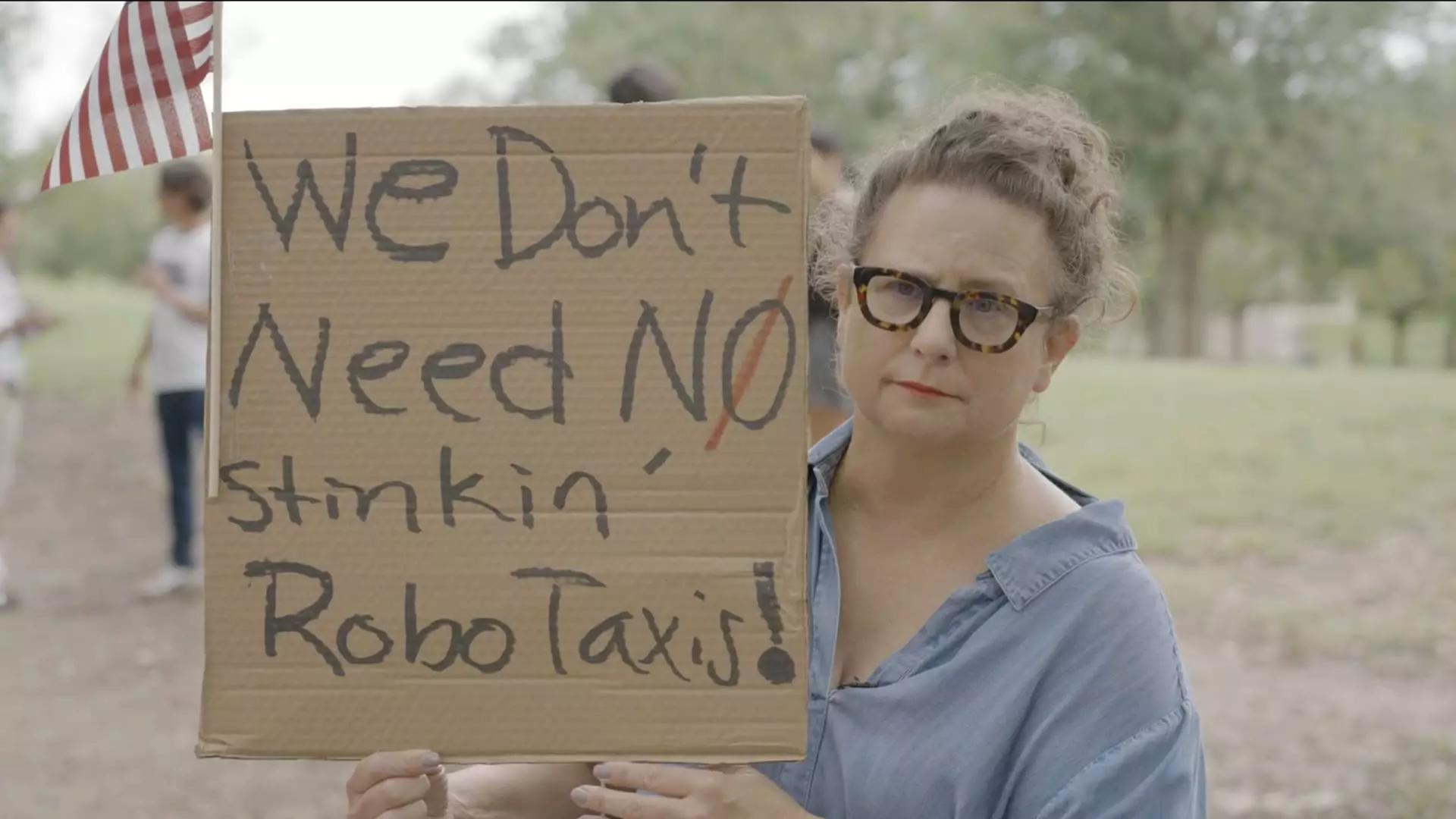The impending launch of Tesla’s robotaxi service in Austin has ignited significant public backlash, raising alarms over the implications of Elon Musk’s ambitious yet controversial venture. Scheduled to commence on June 22, this pilot program has become a flashpoint for activists and citizens alike who are deeply concerned about Tesla’s approach to automation and the company’s historical entanglements with political figures that many find troubling. Opponents of Musk’s plans converged in downtown Austin, combining their voices to stand against what they view as an unchecked leap into a precarious operational model.
The Safety Paradox of Automation
At the forefront of this mounting dissent is a pressing critique of Tesla’s autonomous driving technology, including its standard Autopilot and premium Full Self-Driving (FSD) packages. Safety advocates have documented alarming incidents involving Tesla vehicles that employ these technologies; reports indicate hundreds of collisions, with multiple fatalities. Such figures not only underscore the immediate dangers posed by these systems but also highlight a larger issue: the apparent lack of rigorous oversight and accountability in the automated driving space. Proponents of the robotaxi initiative argue for innovation and progress, yet it is vital to question whether such advancement can justify the potential risks to public safety.
The Dawn Project: An Advocacy for Transparency
Organizations like the Dawn Project are taking a hard stance against Musk’s vision. Their demonstration of a Tesla Model Y equipped with FSD software revealed stark shortcomings, as footage of the vehicle neglecting basic safety protocols—such as stopping for a school bus with its stop sign extended—was starkly alarming. The demonstration effectively crystallizes the concerns of many: are we moving too quickly into a future driven by technology that is still grappling with fundamental safety issues? Dawn Project CEO Dan O’Dowd’s dual role in the industry raises further questions about motivations and transparency when it comes to regulatory compliance and safety standards in a rapidly evolving market.
Concerns at the Intersection of Politics and Technology
The protests against Musk are also intertwined with a broader discontent regarding his political affiliations. His cooperation with the Trump administration has alienated many, inciting a faction of citizens who are wary of the ethical implications of merging corporate ambition with partisan politics. Citizens like Stephanie Gomez have articulated a lack of confidence in how Tesla navigates safety standards, demanding not just accountability but an ethical framework that comprises both technological advancement and social responsibility.
Moreover, the call for transparency extends beyond numbers; citizens want insight into testing results and assurance that this technology won’t endanger lives as it seeks to become ubiquitous. As robotaxi technology progresses, the dichotomy between innovation and safety cannot be ignored, and corporate giants like Tesla must confront these realities head-on lest they fall victim to the very risks they are attempting to manage.
The hesitance surrounding Tesla’s foray into the robotaxi business serves as a wake-up call. It’s imperative that in our rush to embrace automation, we don’t allow the wheels of progress to roll over the principles of safety and ethical responsibility.

Leave a Reply